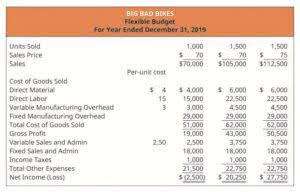
For real estate professionals, accurate depreciation adjustments are crucial. Accurate depreciation adjustments drive financial transparency and stakeholder trust. Ultimately, accurate depreciation adjustments ensure that income statements reflect the true profitability of a property. Reconciliation ensures that financial records match actual transactions. Regular reconciliations ensure that discrepancies are identified and addressed promptly. Training sessions can ensure that all team members understand their importance and implications.
- Buildium is an all-in-one accounting and property management software solution.
- For real estate professionals, profitability analysis is a core skill.
- For real estate professionals, demonstrating fiscal responsibility is a core value.
- With 6.5 million users, it has become one of the most trusted real estate accounting solutions.
- Revenue recognition in real estate means recording income when you’ve fully earned it.
- With professional accounting assistance, each transaction is tracked and categorized properly, ensuring that the numbers always reflect the true state of the portfolio.
How Much Are Closing Costs When You Buy a House?

The negotiated price of the property remains unchanged, and parties receive no invoices for fees or costs at close of escrow. Demand for structured installment sales resurfaced with the passage of the Tax Cuts and Jobs Act (TJCA) of 2017, which substantially lowered the threshold for triggering the 20% capital gains tax. 5.8 The percentage of completion method is applied on a cumulative basis in each reporting period to the current estimates of project revenues and project costs. Therefore, the effect of a change in the estimate of project costs, or the effect of a change in the estimate of the outcome of a project, Debt to Asset Ratio is accounted for as a change in accounting estimate. The changed estimates are used in determination of the amount of revenue and expenses recognised in the statement of profit and loss in the period in which the change is made and in subsequent periods.

Ensuring Compliance with Accounting Standards

Implement a double-entry bookkeeping system to ensure every transaction is balanced with corresponding unearned revenue credits and debits. Identify and monitor operating expenses (OPEX) such as rent, utilities, and salaries. Distinguish these from direct costs tied to services, such as photography for listings or staging expenses.
Adapting to Advancements in Real Estate Accounting Software
Regular audits ensure that financial data is accurate and aligned with industry standards. Training sessions can ensure that all team members are prepared for audits and understand their implications. Moreover, clear protocols ensure that audits are conducted transparently and ethically. Furthermore, audits provide insights into areas of improvement and best practices. By keeping a close eye on these figures, owners can make adjustments as needed, ensuring their property remains profitable. It also helps in setting rental rates, planning for future expenses, and ensuring the property’s long-term financial health.
Use Accurate Reporting Procedures

Decide between cash-based and accrual-based accounting to track your expenses and income. Cash-based accounting records income and expenses when cash changes hands, providing a clear view of available funds. Accrual-based accounting records transactions when they occur, offering greater visibility into future revenue and expenses. Commercial estate accounting involves more complex lease agreements, substantial property expenses, and larger-scale properties that require complicated accounting practices. However, residential estate accounting is more uncomplicated and focuses on individual or small-scale properties with straightforward rental income and expenses. Residential properties involve shorter lease terms, while commercial leases are usually long-term.
Interest rates including those offered on the mortgage can be volatile and subject to change. Rates are subject to multiple factors such as geographic region, property type, the type of loan applied for, and accounting for real estate transactions the applicant’s credit score. A small infestation can spread to become very destructive and expensive to fix. Wood-destroying pests can be eliminated but you’ll want to ensure that the issue can be resolved for a reasonable fee.
- This involves implementing real-time data syncing, using advanced reporting features, and integrating with property management software.
- This involves ensuring compliance with accounting standards, gaining insights from financial analysis, and benefiting from tax planning and strategies.
- The real estate industry is a dynamic blend of investment, property management, and client service.
- Real estate accounting focuses on tracking commission income, property expenses, depreciation, and investment returns.
- In their formation, REITs can choose to take on any type of business structure.
- By leveraging real estate accounting software and aligning financial activities with property management goals, businesses can achieve unparalleled efficiency.
A commitment to continuous improvement ensures long-term financial success. Properties often have multiple revenue streams, from rentals to parking fees. Training sessions can help real estate professionals understand these revenue streams better. For real estate professionals, managing multiple revenue streams efficiently is crucial. Ultimately, accurate revenue management drives profitability and business success.


